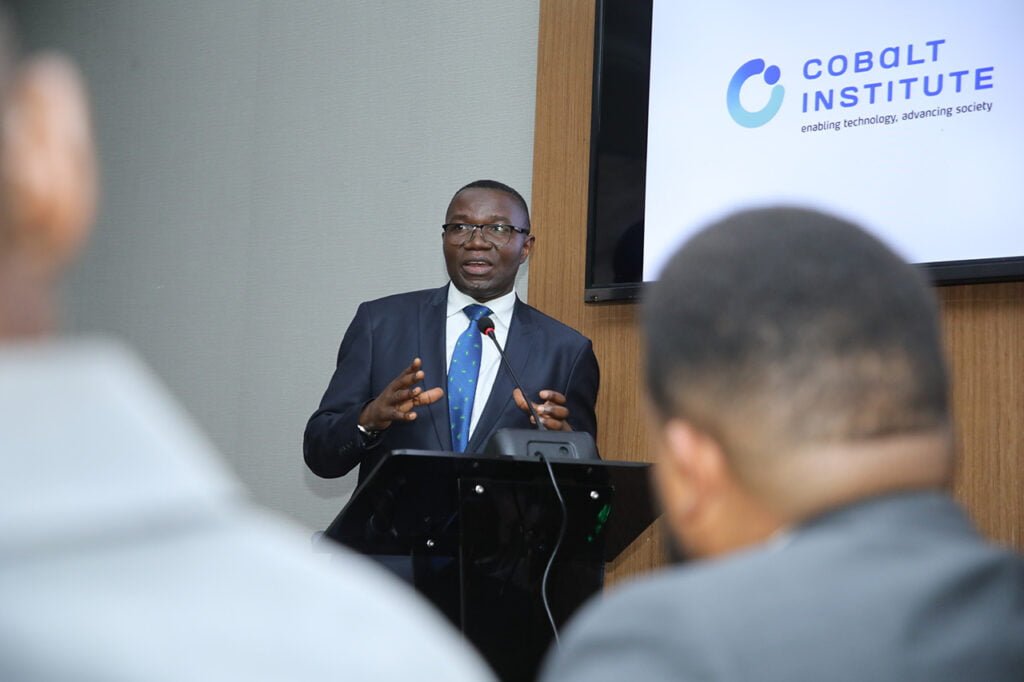What is the DRC’s role in Green, Equitable and Just Energy Transition? Key takeaways from the Cobalt Institute’s Pre-COP27 Side Event in Kinshasa
By Susannah McLaren, Head of Responsible Sourcing and Sustainability
The Cobalt Institute convened high-level Congolese officials and cobalt stakeholders for a pre-COP27 side event on the DRC’s role in a green, equitable and just energy transition that took place on 6 October 2022 in Kinshasa, Democratic Republic of Congo (DRC). The event was well-attended by government officials, diplomatic missions, international organizations, industry and civil society.
The DRC boasts some of the highest quality copper reserves globally, and over 70% of the world’s cobalt is produced in the DRC as its by-product. The country is also home to one of the largest lithium deposits in the world. The transition to net zero is urgent, and the role that cobalt, copper and lithium produced in the DRC play within that transition is critical.
And yet, despite being endowed with exceptional natural resources, the DRC continues to face socio-economic pressures and is home to the largest artisanal mining workforce in the world amongst other challenges. This landscape highlights the urgency to move forward mindful of the need for a green, equitable and just transition. Failure to do so risks amplifying the existing inequities that have already contributed to or exacerbated the climate crisis.
To help initiate a dialogue around what this agenda means for the DRC, and to feed into discussions at COP27, the Cobalt Institute convened senior DRC government officials and key Congolese stakeholders in a roundtable. The event, which was supported by the Congolese Presidency, was held to coincide with the Pre-COP27 Ministerial Meeting that took place in Kinshasa that same week. Below we capture the key messages from our roundtable.
Participants highlighted the DRC’s position as a “Solution Country” with a unique and crucial role in the just transition. The DRC’s Minister of Industry Julien Paluku told assembled guests “We are the transition”. Possessing large reserves of cobalt and lithium, interlocutors also noted that the just transition presents a major opportunity for the DRC. André Wameso, Deputy Chief of Staff to the President, emphasized that the DRC would offer its natural resources to the world on balanced, win-win terms, in contrast to former eras. Both Mr Wameso and Minister Paluku foregrounded the DRC’s ambitions to grow its capacity to transform its minerals into battery precursors in transborder special economic zones jointly managed with Zambia.
Speakers from all sectors were clear of the importance of formalizing artisanal cobalt production. David Sturmes, Corporate Engagement & Strategic Partnerships of the Fair Cobalt Alliance (FCA), highlighted investor concerns and the imminent threat of substitution of cobalt if action was not taken. Civil society representatives in the audience noted delays in key projects and questioned whether the relevant actions could be taken in the limited time window. Reflecting on the roughly 200,000 artisanal miners generating a billion dollars’ worth of cobalt, interlocutors noted the opportunities for job creation, uniquely flexible production capacity, and potential state revenue offered by formalized artisanal cobalt mining. But several interventions urged the need to also factor in a fair price in the equation.
The assembled participants agreed that there are urgent decisions for the government to make to pave the way for formalization and that these must be followed through with action. Emmanuel Umpula, Executive Director of AFREWATCH, was clear that to go from “hypocrisy to action”, it was vital for the DRC state “to clarify the rules of the game”. This was the first event during which representatives of state artisanal cobalt monopoly Entreprise Générale du Cobalt (EGC) and responsible mining firm Sud South shared a stage. Civil society audience members noted a perceived conflict between the two. But both Eddy Kioni, CEO of Sud South, and Tosi Mpanu Mpanu, Health, Security, and Environment Manager for EGC, emphasized the opportunities to work together, deferring to government to clarify this collaboration.
Speakers reinforced the importance and positive contribution of large-scale industrial firms. Marie-Chantal Kaninda, Glencore DRC Head of Corporate Affairs and Chair of Kamoto Copper Company (KCC), noted Glencore’s investment in green energy production, development of Congolese capacity and efforts to stimulate local economies. She also pointed to Glencore’s commitment to the formalization of artisanal mining through its membership of the Fair Cobalt Alliance, and the challenge posed to the company by illegal incursions.
Josee-Blandine Ongotto, Director of the COTECCO Project of the International Labor Organization (ILO), highlighted the importance of social dialogue amongst government, workers and employers as well as the implementation of ILO Conventions which she saw as critical to achieving a just transition. Ms Ongotto encouraged project-level collaboration between civil society and the private sector, particularly in promoting responsible supply chains.
The challenge of the energy transition for the DRC was raised by several speakers and audience members. Minister Paluku wondered “Can we talk of energy transition if we don’t have energy?”. Some questioned how long the transition was expected to last for. Tosi Mpanu Mpanu, who is also lead climate change negotiator for the DRC government, clarified the DRC’s transition vision included the expansion of energy capacity in all forms out to 2030, and to net zero by 2050. He was clear that additional finance and technical capacity were critical to meeting these timelines.
All parties agreed that there was no time to waste, and that the time to act was now!
Click here to learn more about the event and watch the recording.

